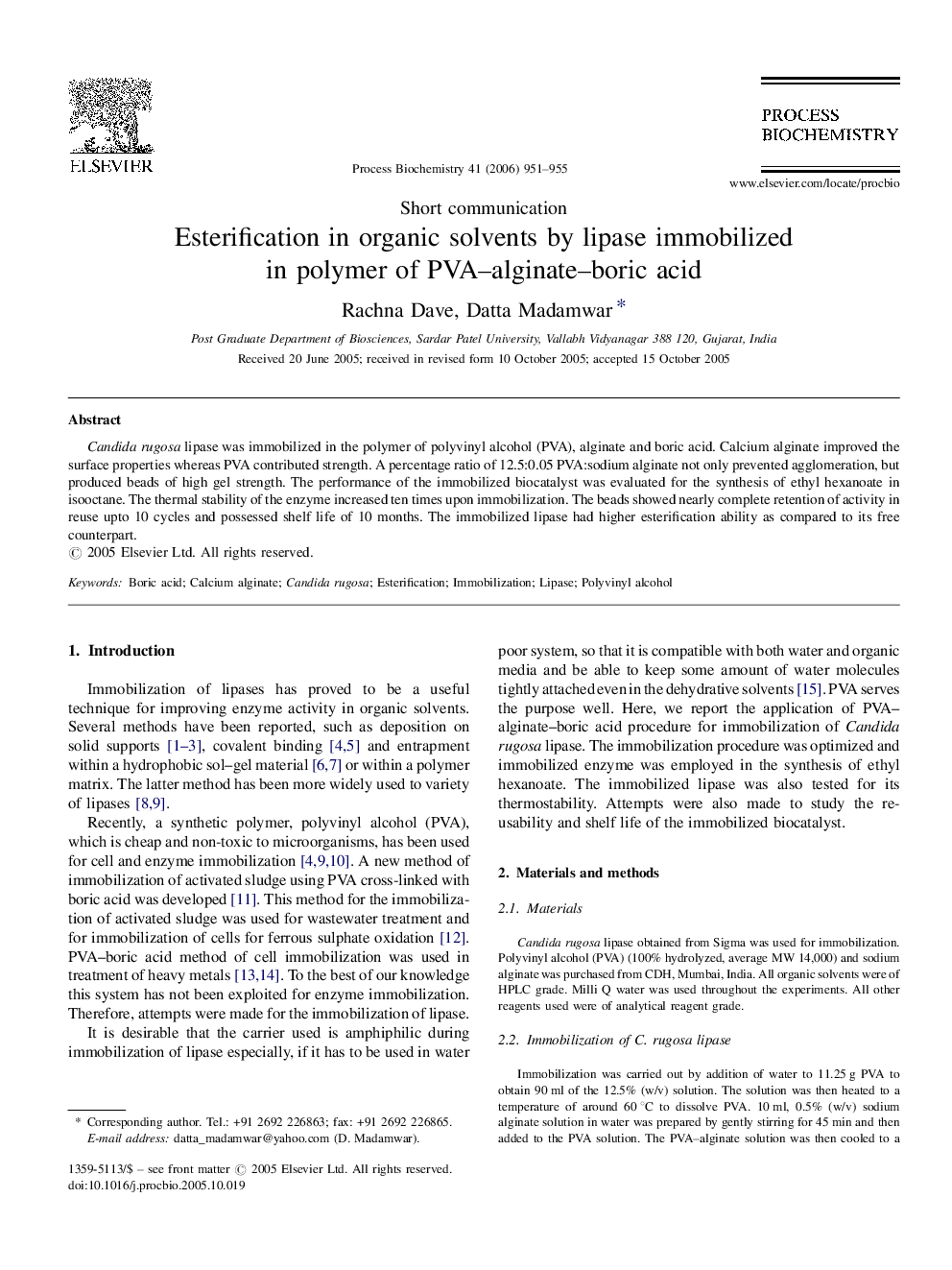| Article ID | Journal | Published Year | Pages | File Type |
|---|---|---|---|---|
| 36630 | Process Biochemistry | 2006 | 5 Pages |
Abstract
Candida rugosa lipase was immobilized in the polymer of polyvinyl alcohol (PVA), alginate and boric acid. Calcium alginate improved the surface properties whereas PVA contributed strength. A percentage ratio of 12.5:0.05 PVA:sodium alginate not only prevented agglomeration, but produced beads of high gel strength. The performance of the immobilized biocatalyst was evaluated for the synthesis of ethyl hexanoate in isooctane. The thermal stability of the enzyme increased ten times upon immobilization. The beads showed nearly complete retention of activity in reuse upto 10 cycles and possessed shelf life of 10 months. The immobilized lipase had higher esterification ability as compared to its free counterpart.
Keywords
Related Topics
Physical Sciences and Engineering
Chemical Engineering
Bioengineering
Authors
Rachna Dave, Datta Madamwar,
